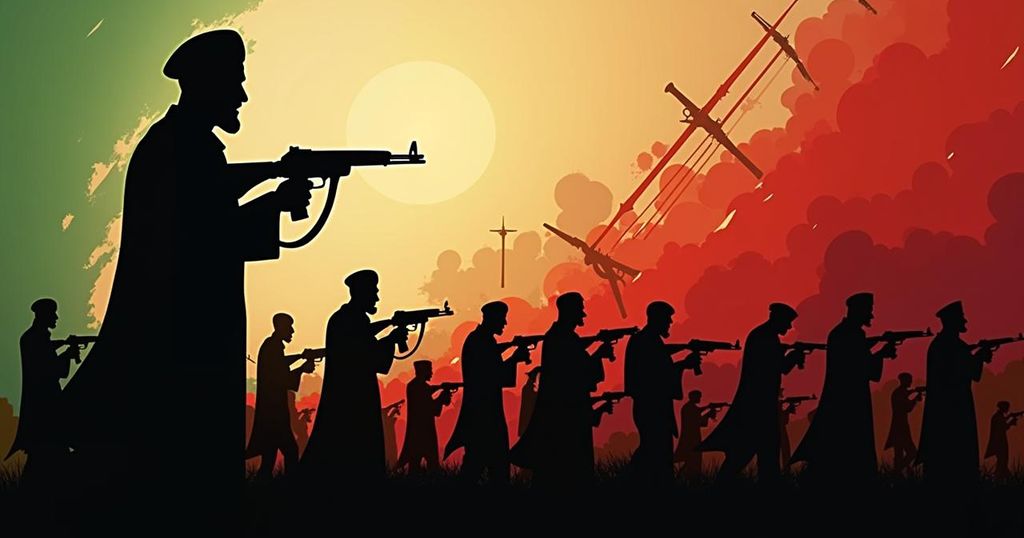The assassination of Hezbollah leader Hassan Nasrallah has compelled Iran to adopt a more aggressive stance against Israel, resulting in the launch of 180 ballistic missiles. Despite initial calls for restraint following the election of reformist President Masoud Pezeshkian, military leaders in Iran have insisted on retaliation due to escalating Israeli attacks. The situation indicates increased tensions and a potential for direct conflict as Iranian officials seek to uphold their reputation in the face of ongoing hostilities.
The assassination of Hezbollah’s leader, Hassan Nasrallah, by Israel has prompted a significant shift in Iran’s approach toward its adversary. Following the event, senior Iranian political and military leaders convened to determine an appropriate response. For weeks, there had been calls for restraint, especially after the election of reformist President Masoud Pezeshkian in July. However, with the killing of Nasrallah, Iran’s military leadership, concerned about the perceived weakness of the regime, urged a robust retaliation. On Tuesday, Iran launched approximately 180 ballistic missiles at Israel, escalating tensions and placing the two nations on the brink of direct conflict. Iranian officials have articulated that “Nasrallah’s assassination was the last straw” and underscored a consensus that Israel’s escalating actions necessitated a forceful response to maintain its reputation and support among its allies. Supreme Leader Ayatollah Ali Khamenei, faced with this military pressure, has taken a considerable risk as he balances his leadership with recent reformist diplomatic overtures aimed at alleviating sanctions through negotiations with Western powers following years of nuclear standoffs. President Pezeshkian, who previously advocated restraint, now finds his administration under immense pressure, as the promises from Western leaders have not materialized into substantive support, leading to frustration in Iranian political circles. The unrelenting Israeli hostilities, culminating in the deaths of significant Revolutionary Guards figures, have validated hardliner arguments against the reformist agenda. The recent missile attack represents a dramatic departure from earlier Iranian tactics of signaling intentions before military actions, with the new barrage being both swift and damaging to Israeli military operations. Despite the escalation, Iranian officials maintain that their actions will only continue if provoked further by Israel. The situation remains precarious, as both nations grapple with the repercussions of their decisions in an ever-intensifying regional conflict.
This article discusses the aftermath of the assassination of Hassan Nasrallah, the leader of Hezbollah, by Israel, which has led to a decisive shift in Iranian policy. Following a period of restraint, driven by the hopes of President Masoud Pezeshkian’s reformist agenda, Iranian military leaders have pushed for retaliation against Israel, leading to an unprecedented missile attack. The article highlights the internal divisions within Iran over how to respond to Israeli aggression while navigating the complicated landscape of international diplomacy and domestic politics. It illustrates the significant implications of this event for Iran’s military posture and political dynamics.
In conclusion, the assassination of Hassan Nasrallah marked a pivotal moment for Iran, pushing the regime towards a more aggressive military strategy against Israel. The internal power struggle between reformist and hardline factions has intensified, with the military asserting that failure to respond adequately to Israeli provocations would jeopardize Iran’s credibility and support among its allies. As tensions rise, both nations face uncertain futures, with the potential for further escalations in response to one another’s military actions.
Original Source: www.irishtimes.com







